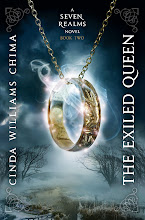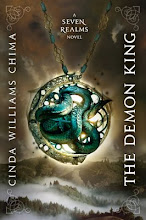
In the Bleak Mid-Winter
This time of year, I always feel like my emotions have been sandpapered to an exquisite tenderness. Joy and sorrow reverberate off each other and memories boil up, stirred by the scent of pine or the weight of an ornament in my hand or the sound of bells. That’s how I know it’s time for the annual Christmas guilt.
When my sons were younger, it was all about working full time and not being available to choreograph the day-care holiday pageant or help them craft original holiday art to be featured in our family Christmas cards. Not that I can draw my way out of a paper bag (nor, apparently, come up with an appropriate metaphor). There was the one stellar year when my older son and I made wrapping paper by block-printing butcher paper with cookie cutters. Or was it carved potatoes? I disremember. Maybe I just made that up.
I do bake homemade cookies, rich with butter and sugar and nuts, but these days you never know whether to feel proud or guilty about that.
My Christmas cards have computer-generated address labels affixed (my calligraphy pen is out of ink, you see.) They do not include a Christmas letter. In rare cases there is a hand-written two-line update (We have two sons now and they’ve both already graduated from high school. Time flies.)
I’m not the designated Christmas shopper. At holiday parties (which I don’t host, by the way) I end up sequestered in groups of women who gripe about having to do all the shopping—for themselves, for the kids, and for their husbands’ relatives. I just keep quiet. Because, in fact, my husband is Father Christmas (but sexier). He really gets into Christmas, and he will do hours of research in order to find just the right present, and he prides himself on finding things that aren’t on your Christmas list, but that are just perfect. Gift cards are not allowed. He knows all the games and books my sons own, and he knows what the new releases are, and he gets online and sends away for obscure T shirts and classic sci-fi and horror movies and buys the All Clad cookwear I’ve been dreaming about.
And I let him. Knowing my presents for him will be lame, lame, lame.
This time of year, I always feel like my emotions have been sandpapered to an exquisite tenderness. Joy and sorrow reverberate off each other and memories boil up, stirred by the scent of pine or the weight of an ornament in my hand or the sound of bells. That’s how I know it’s time for the annual Christmas guilt.
When my sons were younger, it was all about working full time and not being available to choreograph the day-care holiday pageant or help them craft original holiday art to be featured in our family Christmas cards. Not that I can draw my way out of a paper bag (nor, apparently, come up with an appropriate metaphor). There was the one stellar year when my older son and I made wrapping paper by block-printing butcher paper with cookie cutters. Or was it carved potatoes? I disremember. Maybe I just made that up.
I do bake homemade cookies, rich with butter and sugar and nuts, but these days you never know whether to feel proud or guilty about that.
My Christmas cards have computer-generated address labels affixed (my calligraphy pen is out of ink, you see.) They do not include a Christmas letter. In rare cases there is a hand-written two-line update (We have two sons now and they’ve both already graduated from high school. Time flies.)
I’m not the designated Christmas shopper. At holiday parties (which I don’t host, by the way) I end up sequestered in groups of women who gripe about having to do all the shopping—for themselves, for the kids, and for their husbands’ relatives. I just keep quiet. Because, in fact, my husband is Father Christmas (but sexier). He really gets into Christmas, and he will do hours of research in order to find just the right present, and he prides himself on finding things that aren’t on your Christmas list, but that are just perfect. Gift cards are not allowed. He knows all the games and books my sons own, and he knows what the new releases are, and he gets online and sends away for obscure T shirts and classic sci-fi and horror movies and buys the All Clad cookwear I’ve been dreaming about.
And I let him. Knowing my presents for him will be lame, lame, lame.




































